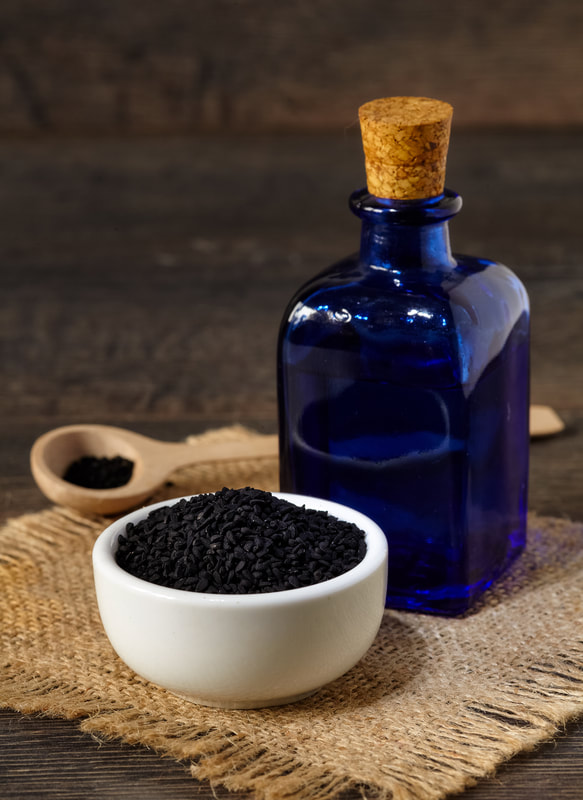- HOME - START HERE
- CONSULTATION SERVICES
- 911 EMERGENCY
- EBOOKS
- Store
- DOSAGES
- HOW TO TAKE
- ANTI-AGING
- CBD AND NIGELLA SATIVA
- RESEARCH SHOWS THAT CANCER RATES WILL RISE DRASTICALLY OVER THE COMING YEARS
- FIBRO CATEGORY
- HERPES CATEGORY
- HIV- Category
- Honey - Category
- Pets
- Top 20 Reasons to use Black Cumin Oil and Capsules
- STROKES CATEGORY
- WEIGHT LOSS CATEGORY
- ANSWER THE QUESTIONS
- Articles
- BLACK SEED OIL IS BETTER THAN TYLENOL FOR ARTHRITIS RELIEF
- Migraines - Headaches - 12 Remedies with Pictures
- My Protocol for Dementia Recovery
- PCOS and Nigella Sativa
- PRIVACY POLICY - GDPR COMPLIANT
- My Team
- About
- Healthy Articles
- Nigella Sativa Online Courses - Part 1
- Childhood Epilepsy
- Natural Diuretics
- Healing Effect on Sarcoidosis
- Nigella Sativa Respiratory Illness
- Cardiovascular Disease
- Depression and COVID19
- 12
- How to Use Nigella Sativa
- How Contagious is Leprosy
- Supporting Human Health - The Immunomodulator
- Nigella Sativa Cancer Ebook
- OK, I am a Muslim - Now What?
- Everything You Ever Wanted to Know About Black Seeds
- Islam Cancer Ebook
- DONATION
- Nigella sativa is an safe alternative Non-Hodgkin’s treatment option
- RESEARCH ON WHY YOU SHOULD HEAT NIGELLA SATIVA SEEDS
- Black Seed Cuisine Ebook
- IS THERE A CURE FOR LUPUS - NATURAL SOLUTIONS
- Black Seed Oil
- TURMERIC DETOX AND MORE
- MASTERS OF HEALING
- PAYMENT RECEIVED
- Non-clickable Page
- IRRITABLE BOWEL SYNDROME - NATURAL SOLUTIONS
- MY CANCER COLLECTION
- CONTACT
Black Seed Oil and Epilepsy: A Natural
Solution for Seizures
THIS ARTICLE IS COPYRIGHTED FOR NIGELLASATIVACENTER.COM ONLY. ALL RIGHTS RESERVED. T
HIS ARTICLE CONTAINS AFFILIATE LINKS I HIGLY RECOMMEND. PLEASE READ MY DISCLOSURE POLICY.
HIS ARTICLE CONTAINS AFFILIATE LINKS I HIGLY RECOMMEND. PLEASE READ MY DISCLOSURE POLICY.
|
As many as three million Americans, and upwards of 65 million people worldwide, suffer from a serious neurological disorder that causes them to experience frequent, unpredictable, and seemingly inexplicable seizure episodes.
The official name for this condition is epilepsy, and statistics indicate that it's the fourth most common neurological problem in the world – next to migraines, strokes, and dementia [1]. What is epilepsy, exactly? It's basically a misfiring of electrical signals in the body that results in a sudden rush of "energy" to the brain. This electrical "pulse," of sorts, can affect just one part of the brain (known as a focal, or partial, seizure) or the entire thing (known as a generalized seizure), resulting in uncontrollable spasms, muscle twitching, and in more extreme cases even loss of consciousness (and any recollection of the seizure episode). Since there's no official cure for epilepsy, the disease is said to be manageable only to the extent that pharmaceutical medications are able to effectively keep seizure episodes at a minimum. And for most epilepsy sufferers, this is the path they end up taking: one in which anti-seizure medications become as normal a part of life as sleeping or eating. |
PawSoxMom
Although the (name removed) brand of black seed oil helped me with my MS symptoms a lot, with the Perfect Press I noticed it helped significantly more within the first 48 hours after I started taking it. And it tastes a whole lot more palatable as well having a much smoother taste.
It's a tough existence for such folks because many epilepsy drugs come with serious side effects like chronic fatigue, dizziness, and nausea that one might argue are worse than the condition itself. There are also cases of anti-seizure medications causing epilepsy sufferers to become chronically depressed or even mentally deranged, as they've been shown in some cases to provoke thoughts of suicide.
It would seem as though there has to be a better way, and here's the good news: there is! It's known as nigella sativa, or black seed oil, and it's one of the most underrated natural solutions for people who suffer from epilepsy. Black seed oil (also known as black cumin oil) is highly nourishing, completely safe, and for many epilepsy sufferers, the miracle fix they need to live a healthy, normal life.
It would seem as though there has to be a better way, and here's the good news: there is! It's known as nigella sativa, or black seed oil, and it's one of the most underrated natural solutions for people who suffer from epilepsy. Black seed oil (also known as black cumin oil) is highly nourishing, completely safe, and for many epilepsy sufferers, the miracle fix they need to live a healthy, normal life.
Clinical evidence showing that nigella sativa offers powerful neurological support
One of the great things about using black seed oil for epilepsy support is that this functional food is backed by a substantial cohort of peer-reviewed science. At least 16 different studies support the use of nigella sativa as a natural anti-epileptic therapy, each revealing unique elements as to its clinical potential in remediating the onset, frequency, and duration of seizure episodes [2].
One of the earliest studies to take a closer look at the use of nigella sativa in potentiating the body's resistance to seizures was published in the journal Phytomedicine back in 2004. Researchers from Iran found that thymoquinone, a key constituent in the plant's seeds, bears powerful anticonvulsant properties that can help people with epilepsy to experience shorter and less severe seizures while protecting against seizure-induced death [3] – findings that were confirmed in a follow-up study conducted a year later [4].
Several years later, another team of researchers, also from Iran, conducted a double-blinded crossover clinical trial on children with refractory epilepsy, which showed that just one month of treatment with black seed oil resulted in substantial decreases in seizure frequency [5]. Similar results were replicated in another Iranian study published roughly four years later, further revealing that the use of black seed oil to treat epilepsy produces no harmful side effects [6].
Turkish researchers took an even closer look at the effects of thymoquinone on the brain in research that was published in the journal Neurosciences in 2016. They evaluated how the black seed oil constituent impacted the brains of epileptic rats, discovering that it significantly increased the latency time to the onset of the first epileptic spike wave. It also decreased both the frequency and amplitude of epileptiform activity, meaning it reduced the overall impact of electrical seizure pulses [7].
One of the great things about using black seed oil for epilepsy support is that this functional food is backed by a substantial cohort of peer-reviewed science. At least 16 different studies support the use of nigella sativa as a natural anti-epileptic therapy, each revealing unique elements as to its clinical potential in remediating the onset, frequency, and duration of seizure episodes [2].
One of the earliest studies to take a closer look at the use of nigella sativa in potentiating the body's resistance to seizures was published in the journal Phytomedicine back in 2004. Researchers from Iran found that thymoquinone, a key constituent in the plant's seeds, bears powerful anticonvulsant properties that can help people with epilepsy to experience shorter and less severe seizures while protecting against seizure-induced death [3] – findings that were confirmed in a follow-up study conducted a year later [4].
Several years later, another team of researchers, also from Iran, conducted a double-blinded crossover clinical trial on children with refractory epilepsy, which showed that just one month of treatment with black seed oil resulted in substantial decreases in seizure frequency [5]. Similar results were replicated in another Iranian study published roughly four years later, further revealing that the use of black seed oil to treat epilepsy produces no harmful side effects [6].
Turkish researchers took an even closer look at the effects of thymoquinone on the brain in research that was published in the journal Neurosciences in 2016. They evaluated how the black seed oil constituent impacted the brains of epileptic rats, discovering that it significantly increased the latency time to the onset of the first epileptic spike wave. It also decreased both the frequency and amplitude of epileptiform activity, meaning it reduced the overall impact of electrical seizure pulses [7].
Neuroprotective effects of nigella sativa offer comprehensive central nervous system protection
Nigella sativa has similarly been shown in the scientific literature to offer comprehensive protection for the central nervous system. Research published in the journal Neurochemical Research in 2011 found that black seed oil is a powerful antioxidant that helps to reduce and counteract the damaging effects caused by oxidative stress [8]. Free radical damage, it turns out, is strongly associated with the onset and progression of epilepsy [9].
Neurological defects associated with the initiation of epileptic seizures can also be ameliorated through the use of black seed oil. One study that looked at the neuroprotective effects of nigella sativa on amino acid neurotransmitters found that oral intake of the oil helps to increase levels of the amino acids aspartate and glutamate, while decreasing levels of the "downer" neurotransmitter gamma-Aminobutyric acid (GABA), as well as glycine – thus correcting an underlying neurological defect [10].
All of this would explain why many Middle Eastern cultures have for centuries relied upon nigella sativa and its precious seed oil as a functional, healing therapeutic. It's ability to correct imbalances in the central nervous system are well-documented, extending well beyond just epilepsy to chronic pain, neurotoxicity, brain degeneration, and many other damaging health conditions.
"The results of numerous studies have shown that the N. sativa seed exhibits beneficial effects in different central nervous system disorders including memory impairment, epilepsy, and neurotoxicity," concluded one comprehensive review of nigella sativa that was published in the Journal of Toxicology [11].
"Furthermore, based on the current review, it is concluded that N. sativa seed and main constituents through inhibition of AChE (acetylcholinesterase, which can trigger seizures) activity and increasing the GABAergic tone (which helps to counterbalance the neuronal excitation that leads to seizures) and particularly antioxidant effects improved nervous system diseases.
Nigella sativa has similarly been shown in the scientific literature to offer comprehensive protection for the central nervous system. Research published in the journal Neurochemical Research in 2011 found that black seed oil is a powerful antioxidant that helps to reduce and counteract the damaging effects caused by oxidative stress [8]. Free radical damage, it turns out, is strongly associated with the onset and progression of epilepsy [9].
Neurological defects associated with the initiation of epileptic seizures can also be ameliorated through the use of black seed oil. One study that looked at the neuroprotective effects of nigella sativa on amino acid neurotransmitters found that oral intake of the oil helps to increase levels of the amino acids aspartate and glutamate, while decreasing levels of the "downer" neurotransmitter gamma-Aminobutyric acid (GABA), as well as glycine – thus correcting an underlying neurological defect [10].
All of this would explain why many Middle Eastern cultures have for centuries relied upon nigella sativa and its precious seed oil as a functional, healing therapeutic. It's ability to correct imbalances in the central nervous system are well-documented, extending well beyond just epilepsy to chronic pain, neurotoxicity, brain degeneration, and many other damaging health conditions.
"The results of numerous studies have shown that the N. sativa seed exhibits beneficial effects in different central nervous system disorders including memory impairment, epilepsy, and neurotoxicity," concluded one comprehensive review of nigella sativa that was published in the Journal of Toxicology [11].
"Furthermore, based on the current review, it is concluded that N. sativa seed and main constituents through inhibition of AChE (acetylcholinesterase, which can trigger seizures) activity and increasing the GABAergic tone (which helps to counterbalance the neuronal excitation that leads to seizures) and particularly antioxidant effects improved nervous system diseases.
Sources:
[1] https://www.epilepsy.com/learn/about-epilepsy-basics/epilepsy-statistics
[2] https://www.ncbi.nlm.nih.gov/pubmed/?term=nigella+sativa+epilepsy
[3] https://www.ncbi.nlm.nih.gov/pubmed/14971722
[4] https://www.ncbi.nlm.nih.gov/pubmed/15795687
[5] https://www.ncbi.nlm.nih.gov/pubmed/18049435
[6] https://www.ncbi.nlm.nih.gov/pubmed/21112742
[7] https://www.ncbi.nlm.nih.gov/pubmed/27094523
[8] https://www.ncbi.nlm.nih.gov/pubmed/21751034
[9] https://www.ncbi.nlm.nih.gov/pubmed/21672578
[10] https://www.ncbi.nlm.nih.gov/pubmed/23086472
[11] https://www.ncbi.nlm.nih.gov/pmc/articles/PMC4641935/
[1] https://www.epilepsy.com/learn/about-epilepsy-basics/epilepsy-statistics
[2] https://www.ncbi.nlm.nih.gov/pubmed/?term=nigella+sativa+epilepsy
[3] https://www.ncbi.nlm.nih.gov/pubmed/14971722
[4] https://www.ncbi.nlm.nih.gov/pubmed/15795687
[5] https://www.ncbi.nlm.nih.gov/pubmed/18049435
[6] https://www.ncbi.nlm.nih.gov/pubmed/21112742
[7] https://www.ncbi.nlm.nih.gov/pubmed/27094523
[8] https://www.ncbi.nlm.nih.gov/pubmed/21751034
[9] https://www.ncbi.nlm.nih.gov/pubmed/21672578
[10] https://www.ncbi.nlm.nih.gov/pubmed/23086472
[11] https://www.ncbi.nlm.nih.gov/pmc/articles/PMC4641935/
|
COME JOIN MY MEMBERSHIP GROUP - DO YOU MISS ME? THE COST IS $9.95 PER MONTH. LEARN THE DEEP SECRETS OF BEING WELL.
PAYMENT LINK HERE |
STORE TESTIMONY CONTACT EBOOKS ABOUT PAGE PRIVATE POLICYAmazon Affiliate Disclosure
https://www.nigellasativacenter.com is a participant in the Amazon Services LLC Associates Program, an affiliate advertising program designed to provide a means for website owners to earn advertising fees by advertising and linking to amazon(.com, .co.uk, .ca etc) and any other website that may be affiliated with Amazon Service LLC Associates Program. “Amazon and the Amazon logo are trademarks of Amazon.com, Inc. or its affiliates.” Please note I am also an affiliate for Mountain Rose Herbs, , Shareasale and More. Please see our full disclosure here: Disclaimer: The information on this page and on this website has not been evaluated by the FDA. We do not diagnose, treat, cure or prevent illness or disease - instead, we try to help people learn how to do so themselves. Anyone who believes they have a serious medical condition or health issue should seek diagnoses from a qualified medical professional before making any decisions on how to best address their health. Furthermore, anyone contemplating using any products or information on this website must accept such use as experimental and voluntary. No claims are made regarding the therapeutic use of the products or information on this website and all products featured or sold on this website must be considered nutritional supplements only. -
Copyright Protected - Nigella Sativa.com - 2022-2025 - All Rights Reserved - Any infringe on our copyright will be prosecuted to the fullest extent of the law.
|
OWNER: SAMANTHA DAVIS
WEBSITE: BASED ON EVIDENCE ADDRESS: PO BOX 437, ZARGA, JORDAN 13110 PHONE: +962-53923471 HOURS: 5PM - 12AM - NY;TIME EMAIL: naturalliving [email protected] CONSULTATION FEES 1 STOP CENTER IS BASED ON ALL MODALITIES OF HEALING, NOT JUST NIGELLA SATIVA |
- HOME - START HERE
- CONSULTATION SERVICES
- 911 EMERGENCY
- EBOOKS
- Store
- DOSAGES
- HOW TO TAKE
- ANTI-AGING
- CBD AND NIGELLA SATIVA
- RESEARCH SHOWS THAT CANCER RATES WILL RISE DRASTICALLY OVER THE COMING YEARS
- FIBRO CATEGORY
- HERPES CATEGORY
- HIV- Category
- Honey - Category
- Pets
- Top 20 Reasons to use Black Cumin Oil and Capsules
- STROKES CATEGORY
- WEIGHT LOSS CATEGORY
- ANSWER THE QUESTIONS
- Articles
- BLACK SEED OIL IS BETTER THAN TYLENOL FOR ARTHRITIS RELIEF
- Migraines - Headaches - 12 Remedies with Pictures
- My Protocol for Dementia Recovery
- PCOS and Nigella Sativa
- PRIVACY POLICY - GDPR COMPLIANT
- My Team
- About
- Healthy Articles
- Nigella Sativa Online Courses - Part 1
- Childhood Epilepsy
- Natural Diuretics
- Healing Effect on Sarcoidosis
- Nigella Sativa Respiratory Illness
- Cardiovascular Disease
- Depression and COVID19
- 12
- How to Use Nigella Sativa
- How Contagious is Leprosy
- Supporting Human Health - The Immunomodulator
- Nigella Sativa Cancer Ebook
- OK, I am a Muslim - Now What?
- Everything You Ever Wanted to Know About Black Seeds
- Islam Cancer Ebook
- DONATION
- Nigella sativa is an safe alternative Non-Hodgkin’s treatment option
- RESEARCH ON WHY YOU SHOULD HEAT NIGELLA SATIVA SEEDS
- Black Seed Cuisine Ebook
- IS THERE A CURE FOR LUPUS - NATURAL SOLUTIONS
- Black Seed Oil
- TURMERIC DETOX AND MORE
- MASTERS OF HEALING
- PAYMENT RECEIVED
- Non-clickable Page
- IRRITABLE BOWEL SYNDROME - NATURAL SOLUTIONS
- MY CANCER COLLECTION
- CONTACT






